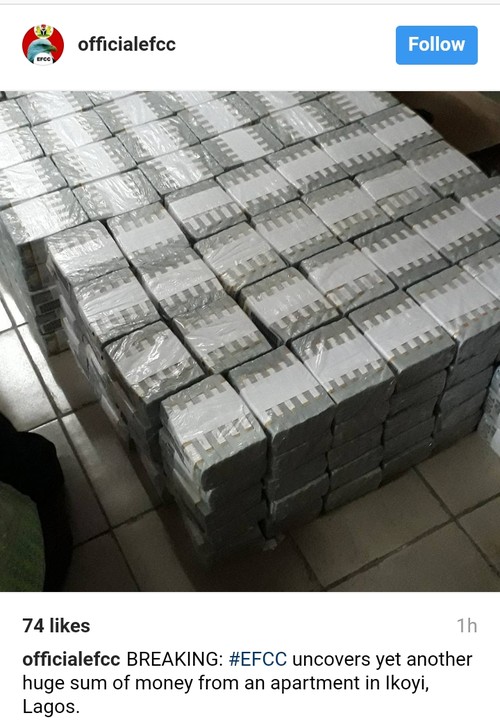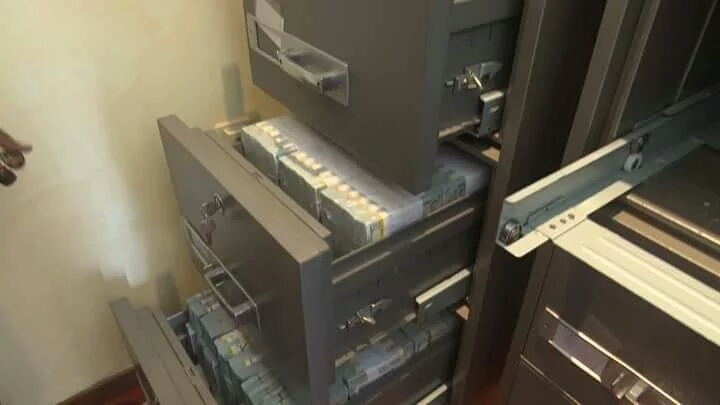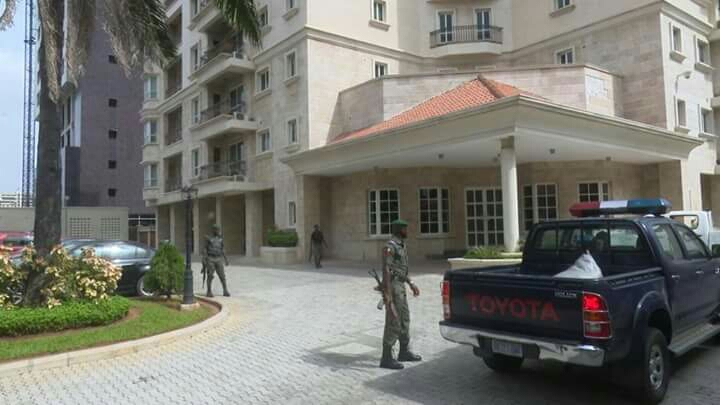More than N15 billion was found in a house today in Ikoyi area of Lagos by operatives of the Economic and Financial Crimes Commission (EFCC) acting on a tip off by yet another whistle blower.

Newsmakersng exclusively learnt that the house belonging to an unnamed Abuja politician is on Gerard Road, Ikoyi, near the Lagos State deputy governor’s house.
EFCC agents who stormed the house early today counted over $38million, N23million, and pounds sterling running into several thousands.
When contacted, the EFCC spokesman in Lagos, Mr Samin Amaddin confirmed the discovery.
He told Newsmakersng that the EFCC agents who went on the mission were yet to return to base as at 5pm.
EFCC Boss, Ibrahim Magu
The Federal Government recently spelled out the benefits awaiting whistle-blowers as it also pledged protection for them.
The Minister of Information and Culture, Alhaji Lai Mohammed, said any whistle-blower whose information leads to the recovery of up to N1billion would receive 5 per cent of the amount.
According to him, the reward for any amount between one and five billion naira would be 5 per cent for the first N1billion and 4 per cent of the remaining N4billion, and that any amount over N5 billion will attract 2.5 per cent reward.
According the computation, a whistle-blower that leads Nigeria to the recovery of cash or assets worth N5billion, would earn N210million.
Mohammed said, ”For example, if a whistle blower provides information leading to the recovery of N10 billion, he or she will receive five per cent of the first one billion naira, four per cent of the next four billion naira and 2.5 per cent of the remaining five billion naira.
”What we have done by making this information public is to reassure potential whistle-blowers that the plan to reward is real. We are not just saying we will pay all whistle-blowers, but we are letting them know in advance what they are entitled to, once the information they provide leads to the recovery of looted funds.”


Mohammed had also given the assurance that the government would protect the identity of all whistle-blowers, whether in the public or the private sector, and also ensure that the information they provide is kept secret.







